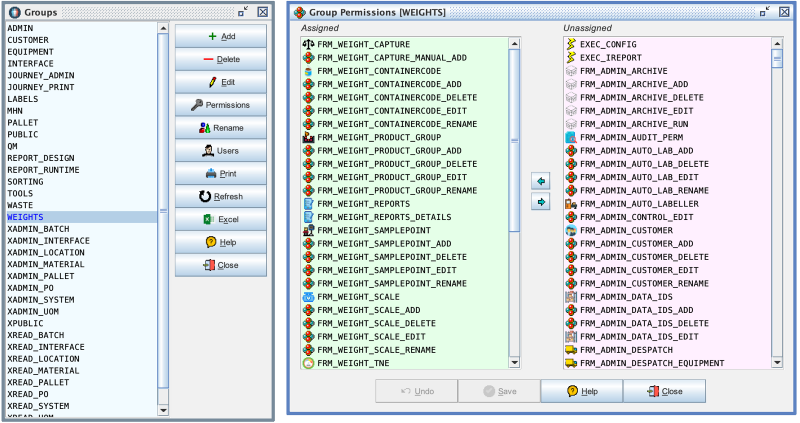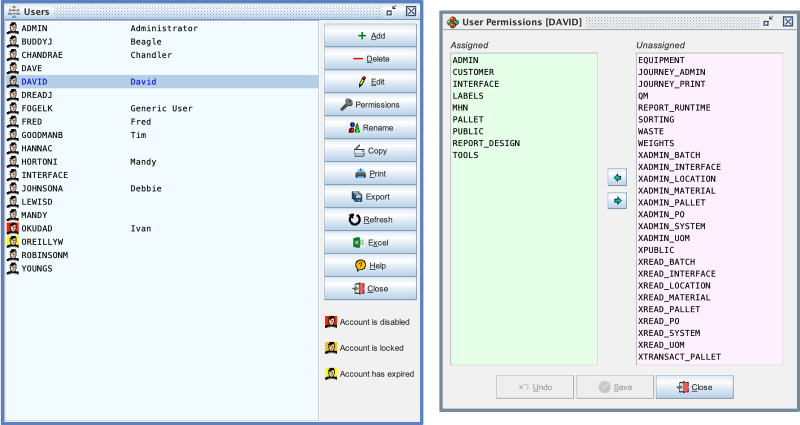Permissions: Difference between revisions
Jump to navigation
Jump to search
No edit summary |
No edit summary |
||
| (2 intermediate revisions by the same user not shown) | |||
| Line 18: | Line 18: | ||
Modules are put into logical groups which perform a role (logical group of associated functions). | Modules are put into logical groups which perform a role (logical group of associated functions). | ||
<br> | |||
<br><br><br><br> | |||
== Assigning [[Users]] to [[Groups]]. == | == Assigning [[Users]] to [[Groups]]. == | ||
<br> | <br> | ||
[[File:Permissions.png|800px|thumb|left|Assign Groups to User]]<br> | [[File:Permissions.png|800px|thumb|left|Assign Groups to User]]<br> | ||
Groups can then be assigned to a User | |||
Latest revision as of 12:25, 5 January 2024

Permissions within Commander4j work like this.
Individual screens and reports are referred to within the application as Modules.
A module can be :-
- Form (screen)
- Report (JasperReport or Barcode Label)
- Functions (actions assigned to buttons)
- Menus
- Executables (External programs)
- User Report (reports which can override default reports)
Modules are put into logical groups which perform a role (logical group of associated functions).

Groups can then be assigned to a User